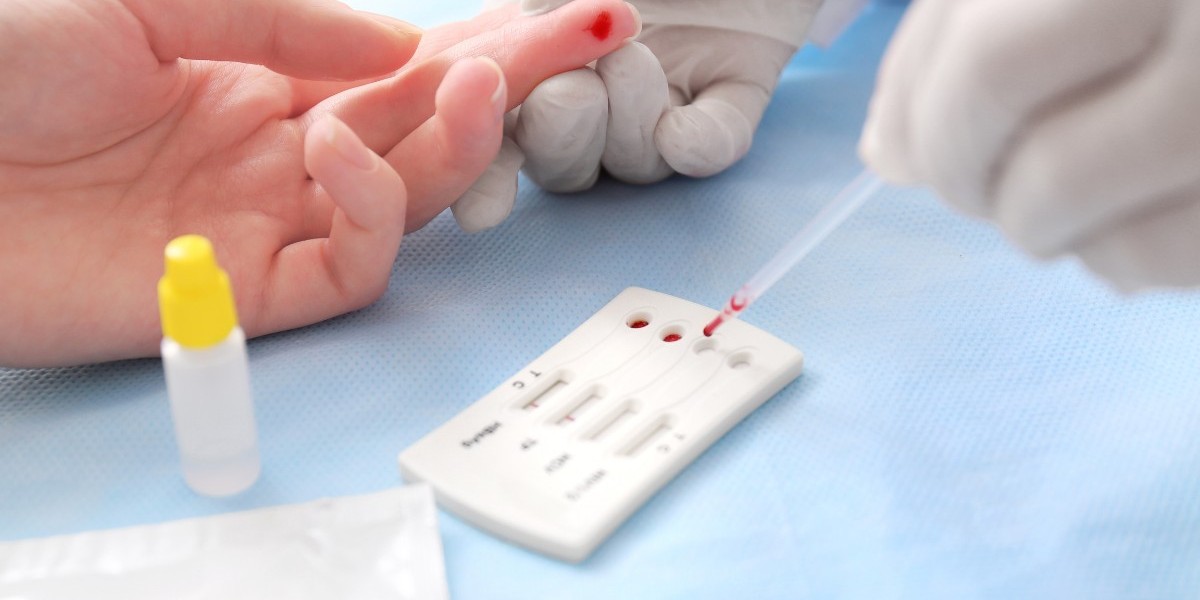Understanding the Hepatitis E Diagnostic Test Market: Key Insights
What Are the Latest Trends in the Hepatitis E Diagnostic Test Market?
The hepatitis E diagnostic test market is witnessing significant growth, driven by increased awareness of the disease and advancements in diagnostic technologies. As of 2024, the market is projected to expand due to the rising incidence of hepatitis E globally, particularly in developing countries. Key trends include:
- Increased Research Funding: Governments and health organizations are investing in hepatitis E research, leading to the development of more efficient diagnostic tests.
- Point-of-Care Testing: There is a shift towards point-of-care (POC) testing, which allows for rapid diagnosis and treatment, especially in rural areas with limited access to healthcare facilities.
- Digital Health Solutions: The integration of digital health platforms for remote testing and monitoring is becoming increasingly popular, enhancing patient accessibility to diagnostics.
These trends indicate a proactive approach to tackling hepatitis E and improving health outcomes worldwide.
What Are the Different Testing Methods for Hepatitis E and How Accurate Are They?
Hepatitis E diagnostic methods have evolved, focusing on both sensitivity and specificity. The primary testing methods include:
- Serological Tests: These tests detect antibodies against hepatitis E virus (HEV) and are commonly used for diagnosing current or past infections. They typically boast high sensitivity and specificity.
- Molecular Tests (PCR): Polymerase Chain Reaction (PCR) tests are utilized for detecting HEV RNA, offering a more definitive diagnosis, especially in acute cases. These tests are highly accurate and provide results within hours.
- Liver Biopsy: While not commonly used for routine diagnosis, a liver biopsy can help assess liver damage in chronic cases.
Recent innovations have enhanced the accuracy of these methods, with some companies developing rapid tests that deliver results in under an hour, significantly impacting patient management.
How Does Hepatitis E Affect Public Health Policies Globally?
The impact of hepatitis E on public health policies is profound, as it poses significant health risks in many regions. Key considerations include:
- Epidemiological Surveillance: Enhanced surveillance systems are critical for tracking outbreaks and understanding the disease's prevalence. Countries are increasingly implementing robust data collection methods.
- Vaccination Strategies: While no specific vaccine is widely available, some regions are exploring vaccination campaigns to prevent outbreaks, particularly in high-risk areas.
- Public Awareness Campaigns: Governments and NGOs are focusing on public awareness campaigns to educate communities about transmission routes, hygiene practices, and the importance of early diagnosis.
These policy responses aim to mitigate the impact of hepatitis E and improve overall public health outcomes.
What Is the Current Prevalence of Hepatitis E and What Are the Diagnostic Needs?
Hepatitis E remains a significant public health challenge, particularly in regions with inadequate sanitation and healthcare resources. The current prevalence is estimated to be higher in parts of Asia and Africa, where outbreaks frequently occur.
Diagnostic Needs:
- Accessibility to Tests: There is an urgent need for affordable and easily accessible diagnostic tests in developing countries.
- Training Healthcare Workers: Training for healthcare professionals on the latest diagnostic methods is essential for improving diagnosis rates.
- Adoption of New Technologies: The market is seeing innovative solutions, such as rapid diagnostic tests (RDTs) and mobile health applications that facilitate better screening and diagnosis.
Top Companies and Innovations in Hepatitis E Diagnostics
Several leading companies are pioneering innovations in hepatitis E diagnostics:
- Abbott Laboratories: Known for its extensive research in infectious diseases, Abbott has developed advanced serological tests with improved accuracy and quicker results.
- Roche Diagnostics: Roche has invested in PCR technology, allowing for sensitive and specific detection of HEV, especially in acute cases.
- bioMérieux: This company focuses on developing rapid diagnostic tests that can be deployed in various healthcare settings, particularly in regions with high hepatitis E prevalence.
These companies are at the forefront of technological advancements, ensuring that diagnostic methods keep pace with the rising demand for effective hepatitis E management.
| For more info | MarketResearchfuture |
Related report
| peripheral intervention market |
| peripheral intravenous catheter market |
| peripheral vascular device market |










